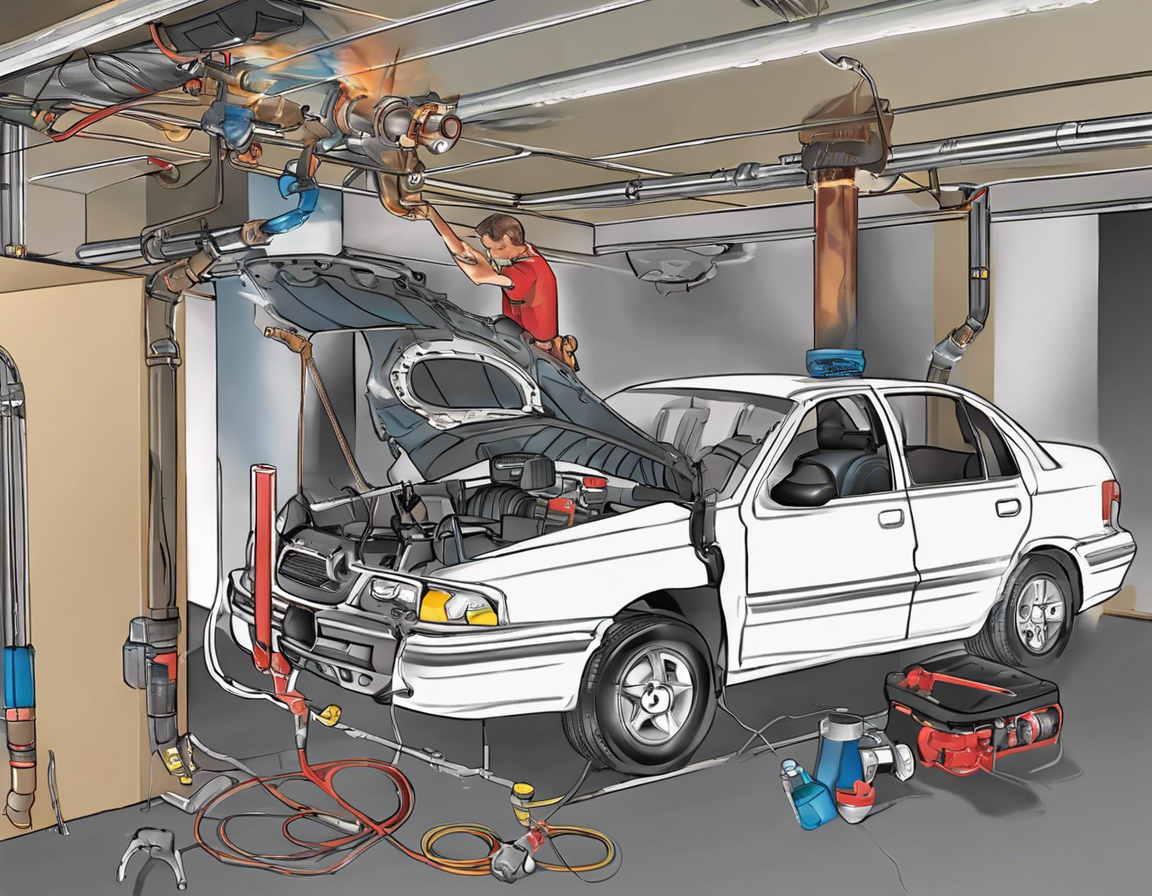
How Much Does Evap System Leak Repair Cost?
The evaporative emission control system, also known as the EVAP system, is an integral part of modern vehicles, designed to capture and recirculate fuel vapors that would otherwise be released into the atmosphere. When there is a leak in this system, it can lead to decreased fuel efficiency, emissions issues, and even trigger the check engine light. Getting an evap system leak repaired is essential not just for the performance of your vehicle but also for environmental reasons.
Understanding the Evap System
Before delving into the cost of repairing an evap system leak, it is important to understand how the system works. The EVAP system consists of several components including the charcoal canister, purge valve, vent valve, and various hoses. When the engine is running, the system actively captures fuel vapors and stores them in the charcoal canister. These vapors are later purged into the engine and burned off, preventing them from being released into the atmosphere.
Signs of an Evap System Leak
Detecting an evap system leak early on can save you from costly repairs down the road. Some common signs of an evap system leak include:
– Check Engine Light: One of the most common indicators of an evap system leak is the illumination of the check engine light on your dashboard.
– Fuel Smell: If you notice a strong smell of fuel near your vehicle, it could be a sign of a leak in the EVAP system.
– Decreased Fuel Efficiency: A leak in the evap system can cause your vehicle to consume more fuel than usual.
– Hissing Sounds: You may hear hissing sounds coming from the fuel tank area, indicating a possible leak.
Cost of Evap System Leak Repair
The cost of repairing an evap system leak can vary depending on the extent of the damage, the specific components that need to be replaced, and the labor costs of the repair shop. On average, you can expect to pay anywhere from $200 to $500 for evap system leak repair. However, this cost can increase if additional components need to be replaced or if the leak is difficult to locate.
Factors Affecting Repair Costs
Several factors can influence the cost of repairing an evap system leak:
– Extent of the Leak: A minor leak that requires a simple hose replacement will cost less than a major leak that involves replacing multiple components.
– Labor Costs: The hourly labor rate of the repair shop can significantly impact the overall cost of the repair.
– Replacement Parts: The cost of the specific components that need to be replaced, such as the charcoal canister or vent valve, will also affect the total repair cost.
DIY vs. Professional Repair
While some minor evap system leaks can be DIY repairable, it is often recommended to seek professional help for evap system leak repair. Repairing the EVAP system requires specialized knowledge and equipment to ensure that the repair is done correctly. Additionally, professionals can perform a thorough diagnostic to pinpoint the exact source of the leak and prevent future issues.
Frequently Asked Questions (FAQs) about Evap System Leak Repair
-
Can I drive with an evap system leak?
It is not recommended to drive with an evap system leak as it can lead to decreased fuel efficiency and emissions issues. -
How long does evap system leak repair take?
The repair time can vary depending on the severity of the leak and the availability of replacement parts. On average, it can take a few hours to a day. -
Will an evap system leak repair improve fuel efficiency?
Yes, repairing an evap system leak can help improve fuel efficiency by preventing fuel vapors from escaping. -
How can I prevent evap system leaks?
Regular maintenance, such as checking and replacing worn hoses, can help prevent evap system leaks. -
Is an evap system leak a common issue in vehicles?
Evap system leaks are a common issue in vehicles, especially in older cars or those that have been poorly maintained. -
Can I clear a check engine light caused by an evap system leak on my own?
While you can clear the check engine light with an OBD-II scanner, it is crucial to address the underlying issue causing the evap system leak. -
Are evap system leaks covered under warranty?
Depending on the warranty coverage of your vehicle, evap system leaks may be covered under certain warranties, such as emissions warranties. -
How often should I have my evap system inspected?
It is recommended to have your evap system inspected as part of your regular vehicle maintenance schedule, typically every 12,000 to 24,000 miles. -
Can an evap system leak lead to other issues in my vehicle?
Yes, if left unresolved, an evap system leak can lead to other issues such as decreased engine performance and increased emissions. -
What should I do if I suspect an evap system leak in my vehicle?
If you suspect an evap system leak, it is best to have your vehicle inspected by a professional mechanic to diagnose and address the issue promptly.


